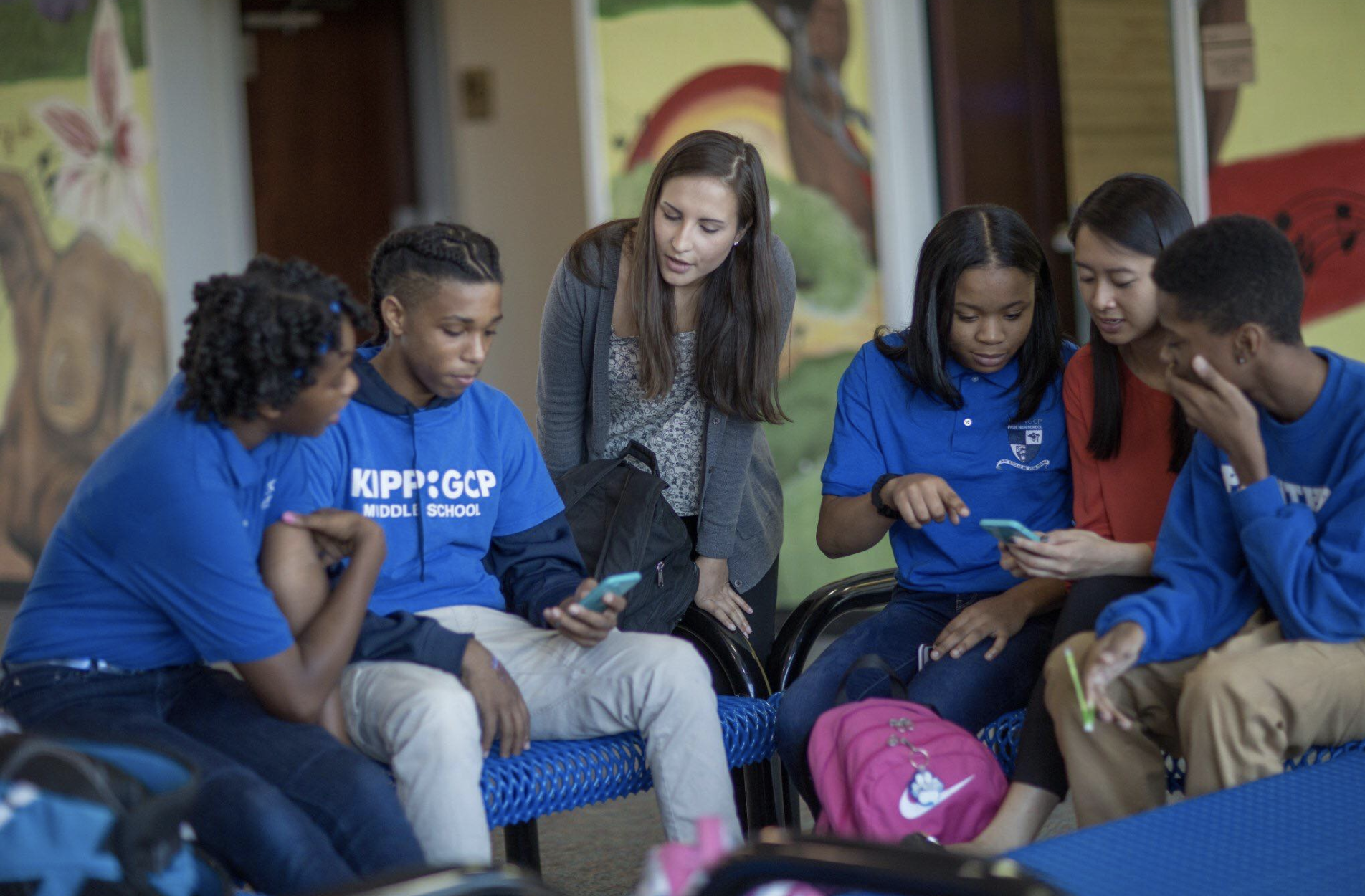Featured, Roddenberry Fellowship
Young people want to talk. Are we ready to listen?
Cristina Leos
July 25, 2019
“It is very hard to just talk one on one about stuff with my parents. When I am alone with them I get very tense and always scared. I can’t wait for the day I can.”
Through our Real Talk mobile app, we have crowdsourced hundreds of stories from teens all over the U.S. and the world and built a safe, platform for teens to share and access important resources. It’s given a glimpse into the things that are on teens’ minds – and they have a lot to say.
The stories we collect deal with a number of sensitive and sometimes taboo topics like puberty, consent, identity, and mental health. Topics like this can make even grown adults feel uncomfortable — yet we are constantly amazed at the openness, honesty, and vulnerability of what teens share with us. Teens have shared that their favorite thing about Real Talk is “how you are able to read other people’s experiences with problems or feelings you are dealing with and know that you are not alone” and “we can be open and honest with no judgment.” To me, this is a strong signal that young people are craving a forum where they can feel heard and understood, and I am committed to furthering our work with Real Talk as one piece of this puzzle. But I have to ask myself: how do teens come to feel so disconnected, to begin with?
There are several factors involved in defining a complex issue like this. But I believe that if we focus on the people – the actual teens, parents, and communities affected – there are important insights to note.
For example, one of the most surprising things we learned early on was the extent to which young teens actually want to talk with their parents about uncomfortable topics. Teens generally believe that their parents want the best for them. One teen put it simply: “parents are your first teachers.” This is an incredibly powerful sentiment, but unfortunately, the dynamics between parents and teens change by the time they reach late middle school and early high school. Teens express a growing fear of disappointment and judgment from their parents that make them reluctant to share. At the same time, parents feel deeply uncomfortable and unprepared to have these important conversations with their teens. This ultimately creates an environment where teens are more likely to turn to a peer or the internet, rather than their parents, for advice.
So what can we do about this? There is no recipe for success, but there are some simple strategies for fostering more openness. Be intentional about creating time and space for teens to share their experiences (maybe refer them to Real Talk!). Ask open-ended questions and actually listen to the responses. Take note when their mood or behavior changes and express gentle curiosity about what might be driving it. Finally – and perhaps most importantly – take care to not dismiss or trivialize their feelings, regardless of how silly or unreasonable they may seem to you.
Real Talk is committed to helping teens know they are not alone in their experiences, but we cannot do this alone. Parents and trusted adults play an important role in helping teens express and regulate their emotions, and the early teen years are a critical period for building these skills. As Real Talk grows, our vision is to be a resource for all teens, parents, and communities by amplifying youth voices and leveraging these stories to advocate for their needs.
About the Author
Cristina Leos is the co-founder of Real Talk, a mobile app that connects teens with authentic stories and trusted resources on sensitive health topics, like sexual health and mental health. Her expertise centers around using behavioral science and technology innovation to improve adolescent health.




